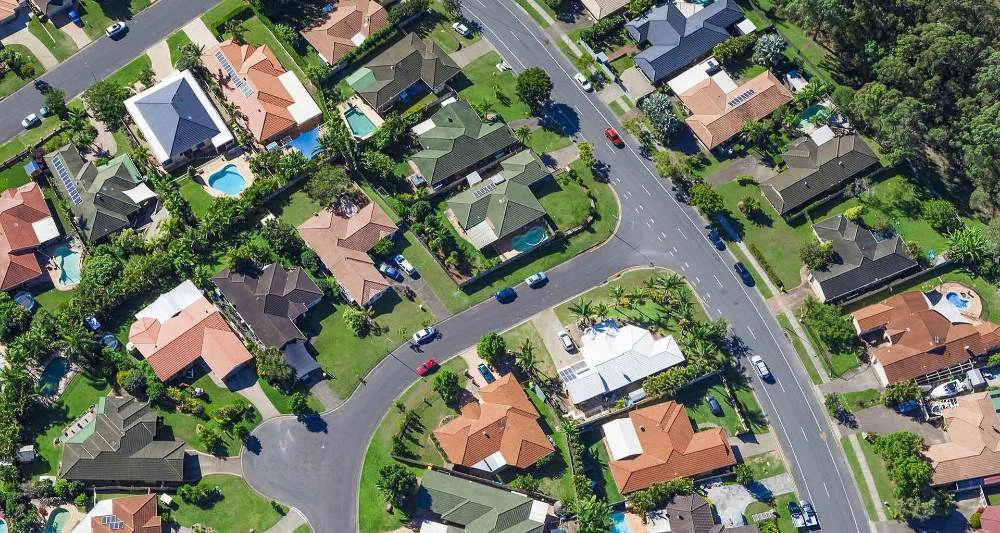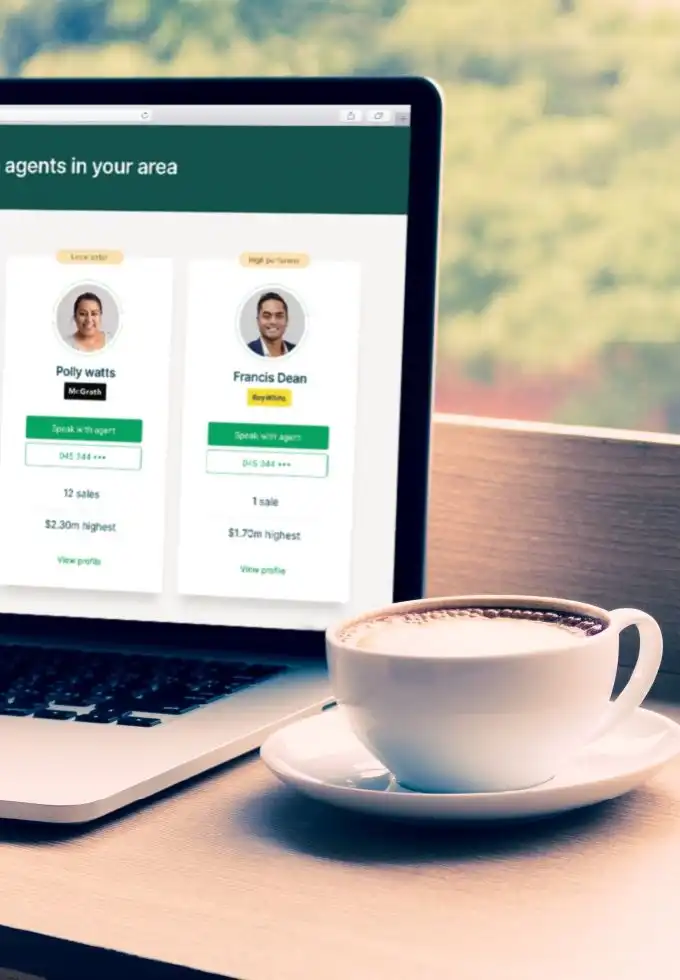Getting over the fear of selling your home
Selling your home is a huge decision, both financially and emotionally. So, if you’re feeling uneasy and stressed about the prospect of doing so, you’re not alone.
According to research published last year by US real estate giant Zillow, almost 36% of home sellers cried during the process, and a whopping one in five confessed to shedding tears five times or more. In addition, another Zillow report published in 2019 showed that 95 per cent of home sellers are stressed by at least one part of the process.
Considering we only ever sell a property once every 10 to 15 years, and that this is most likely one of the biggest financial decisions we will ever make, being frightened of selling makes complete sense.
To help you, we’ve identified the most common fears sellers have, and what to do to either confirm or kiss that fear goodbye.
#1: “I’m scared that my home won’t sell.”
Don’t worry, you’re not alone. The idea of your home languishing on the market is the number-one fear for most sellers. Especially if you have a specific price in mind to enable you to move on comfortably to purchase your next home.
The advice given by many industry experts is to price your home realistically. The fact is, for the right price, and when in the right condition, any property will sell. What this depends on is local market conditions.
According to Brendan Fearn from leading boutique real estate agency BresicWhitney, being considerate around price expectations is really important.
“Making sure that the property is priced competitively is really important, and that is reflected in the interest and attendance that we see.”
“If a property is listed at a competitive price point, it gets good momentum early on. If it’s slightly overpriced, it lacks momentum,” he said.
So how do you find out about local market activity? And we mean, real market activity, the type of activity you see on the ground, not just the data you see online. Well, along with online research, you’ve also got to have some conversations with top local agents.
Here’s what you can do:
Start researching your local market, looking at properties similar to yours. Are prices holding? Be realistic when it comes to comparison as well; are these properties in better condition than yours? If so, then your property may benefit from a little bit of sprucing up.
Some local agencies will write or release market reports that detail the process of some of their most recent sales. A fantastic example of this is BresicWhitney based in Sydney, who write about market activity in the areas they service once or twice per month.
Once you’ve done your research, speak to local agents about the kind of activity they’re seeing in the market. A good place to start is getting two to three market appraisals in advance. This gives you an idea of what your property might sell for, and any good agent will give you advice on what improvements you can make to your property to achieve a higher sale price.
When you’re on the fence about selling, it’s better to plan ahead. In some markets, be it high end or rural, it can take six to nine months to get an offer.
#2: “I know that my property will need some work before I can sell it, and that stresses me out.”
We all know that in the majority of cases your home needs to be well presented to attract those buyers. However, many home sellers don’t want to spend money getting their property up-to-scratch for the market. We get it.
But, sellers also need to understand that the ultimate sale price of your home is directly related to its presentation and overall condition. It’s the reason why we do things like interior painting, working on curb appeal, making small repairs, and spending money on styling. Because generally, the more you spend on making your home better, the more you’ll recoup when you sell.
Here’s what you can do:
You’ve got two options. Do the bare minimum or spend some money on renovations with a good return on your investment.
1: Sell as is
If you’re at peace with selling your home as is, then our advice is to just do the bare minimum. That means, giving your home a deep clean, replacing broken items (hinges on doors, ripped fly screens etc). As long as your home looks cared for, tidy and clean, it will still appeal to buyers.
2: I want to drastically improve the price I can get
Welcome to the home-improvement party, friend. If you want to add significant value to your home, we’ve pulled together this really handy guide around the top renovations and repairs you can take on to maximise your home’s selling price.
And don’t forget this one thing:
If you’ve spoken to an agent, work in collaboration with them. They’ve been around a selling block or two, so they know for sure what’s going to have the biggest impact on your home’s sale price. The greatest agents will give you some amazing advice on how to get your home ready for the market.
#3: "The idea of selling right now really stresses me out, I'm scared I'll be a nervous wreck."
This is a really common fear, because it is definitely bounded by truth. Most home sellers will inevitably find some part of the process stressful. If selling is something you really can’t handle at the moment, then if you can afford to, wait until you feel ready.
Here’s what you can do:
For those who need to sell, or want to, despite any potential stressors, we’ve created a handy resource called the Smart Sellers Guide. You can read it here on our blog or download a printable PDF version.
We know that selling property is a big deal, and we want to make the process less stressful for vendors. The guide gives you the know-how to tackle any selling challenges with a bit more confidence.
#4: “My agent wants to price my home too low.”
Okay, let’s unpack this one. First of all, when it comes to a pricing strategy for your home, you need to work with your agent to come up with a plan. Like we mentioned earlier, you don’t want to price your home way too high, as you won’t get that early momentum in the campaign, but you also don’t want to price it too low and potentially miss out on thousands.
Here’s what you can do:
You need to have a frank conversation with your agent around why they’re suggesting this price. It’s important to work out whether the agent you’re speaking to is actually under-pricing your home or not.
The best way to work this out is to speak to around three agents when it comes to appraisals and selling strategies for your property. If you hear the same number or range from each agent, then this could be a sign that the price you’re hoping for is unrealistic.
#5: "I am worried that I'll get a dud agent."
Independent research is key here. Gone are the days of relying on recommendations from a family member or friend. It’s probably not the best idea going with a friend’s recommendation of a lovely agent, if they’re not the top seller in the area.
What’s more important is the story the data is telling. You need to conduct your own research to know you’re getting the best agent for you and your property.
According to top Melbourne agent Paul Organtzidis, hiring the wrong agent is a common fear, “especially when this person and their selling process could make the difference of $30,000 to $50,0000 in that family’s pocket, let alone the emotional experience that remains forever.”
So how do you pick the right agent?
Here’s what you can do:
Use OpenAgent’s SmartSearch tool to compare the top local agents in your area. You’ll receive a tailored shortlist of the top agents in your area that also details the agent’s sales history and other important market metrics.
According to Mr Organtzidis, “Even if the best agent was sitting across the table from you, how would you know they were the best option if you haven't first compared them to others?”
“Interviewing more agents will do one of two things; either build an even stronger confidence in your first agent of choice, or offer you better options you never knew were there.”
From here, it’s important to interview each one and get a feel for their communication style, way of working, achievements and more.
When it comes to choosing between your shortlisted agents, Mr Organtzidis says, “Trusting your gut is a big thing, because it’s usually always right.”
To help you on your way, we’ve pulled together a handy agent interview checklist, so you can work out which of these top agents is right for you.
#6: “Selling during Covid-19 worries me - I feel scared of people walking through my home.”
We feel you. If you’re worried about opening your home up to strangers, remember that you’re the homeowner, so you are 100% allowed to dictate terms that limit the chances of any kind of transmission.
Here’s what you can do:
Many agents already have strict sanitary-precautions in place, but to be sure, you should talk to them about their current open-home practices.
Regardless of whether open homes are currently banned or not in your area, when and if you do have people coming through your property, you can ask your agent to:
- Make sure hand sanitiser is available
- Make sure everyone abides by strict social distancing measures
- Supply gloves to anyone inspecting the home
- Wipe down surfaces after each inspection
- Make any inspections private - even if open homes are not banned in your state or area
- Communicate to prospective buyers that anyone showing symptoms is not to attend an inspection
- Run an online inspection first via Facebook live or Zoom, and then any buyer who is really interested can come and view the property privately
Once you have addressed all your fears, you will be in a stronger position to either move forward or stay put.









